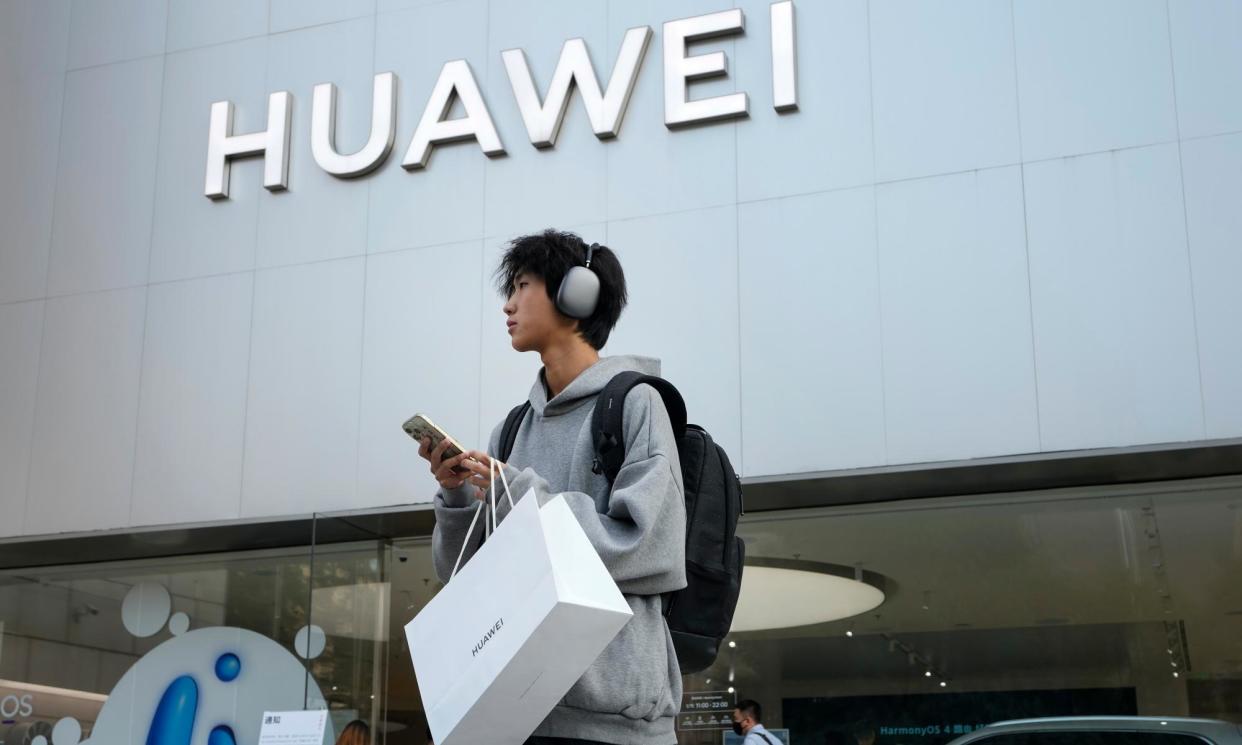Huawei shrugs off US sanctions with fastest growth in four years

Chinese telecoms firm Huawei grew faster in 2023 than it has for four years, as it shrugged off the impact of US sanctions.
Revenues rose by nearly 10% to 704.2bn yuan (£77bn) as the Shenzhen-based company enjoyed a rebound within its consumer segment, which includes smartphone handsets.
The performance meant Huawei defied the effect of sanctions imposed by the US in 2019, when Donald Trump’s White House accused the firm of being a security risk, something Huawei denies.
The UK also vowed in 2020 to remove Huawei from 5G infrastructure by 2027, due to similar concerns, prompting fury from China at a decision taken by the British government, but for which Trump appeared to take credit.
Despite the restrictions, last year marked the third consecutive year of growth for Huawei, which had reported a fall in revenues in 2021, when it exhausted its stocks of microchip reserves.
However, revenues remains below its 2020 peak of 891.3bn yuan.
At a company event last year, Meng Wangzhou, Huawei’s chief financial officer and the daughter of the company founder, announced that Huawei was no longer in crisis mode.
“We’ve been through a lot over the past few years but through one challenge after another, we’ve managed to grow,” said Huawei’s chair, Ken Hu, on Friday.
Huawei’s net profit for 2023 rose by 144.5% to 87bn yuan, with the margin more than doubling on a year earlier to more than 12%.
Some of that came from ongoing income from the sale of its Honor smartphone brand, which Huawei off-loaded in November 2020, the company said.
Huawei’s smartphone business has thrived despite hostility from the UK government and US sanctions, which hamper its ability to make key chipmaking tools
In September, Huawei produced a 5G smartphone using an advanced silicon chip on a scale of miniaturisation thought beyond its capabilities due to US-led export restrictions, analysts said.
Its Mate 60 Pro is powered by a new Kirin 9000s chip that was made in China by the partly state-owned Semiconductor Manufacturing International Corp (SMIC), the analysis firm TechInsights said.
While Huawei’s core IT infrastructure business remained stable, its cloud business grew by more than a fifth, generating revenue of 55.3bn yuan.
Huawei’s four-year-old smart car software and components business also recorded rapid growth, albeit from a much smaller base, up by 128.1% year on year to 4.7bn yuan.
Huawei announced last year it would spin-off the smart car unit into a new company.


